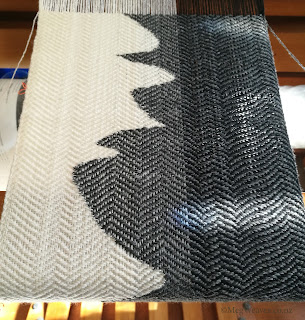Having friends who think deeply is a gift; that I have some with knowledge of not just literature but psychology, sociology and the business surrounding books is an undeserved treasure, for which, (or whom?) I don't express appreciation often enough. I know in my head I should be careful not to exhaust them with my flippancy, but I can't shake Mom's motto she raised us with, either: it's rude to just sit and not take part, (which, strangely, my sister was allowed, but not me,) that we must all participate to the fullest extent to show appreciation of everyone's company.
Crikey.
The other day I inadvertently shared something I've never shared with anyone, ever. We were talking about the benefits of good books, their ability to make us "think", but that thinking manifested in different ways to different people, at different times, with different books. And I blurted out, "I insert myself into the book."
I'm talking about fiction. But not all fiction. And sometimes I don't get to choose. I am an extra: an apprentice fetching a pail of water; one of the many old ladies squeezing fruits while gossiping at the market; a kitchen maid; even a weaver emerging from the dark house, shielding my eyes from the afternoon sun. I am a daughter, a spinster, a widow, but usually an invisible someone who can move around unnoticed within a limited area. And I see, and eavesdrop! Too often I think the central characters are risking great danger and being silly, except, heavens, if they ever listened to me, there will be no story, so it's a good thing I don't have the chance to go anywhere near the center of the story. But the spaces and situations I occupy or encounter by chance are vivid. They are the "other side" of the story.
I love to read historical fiction and magical-realism, especially for young adult. Sometimes while I'm reading, I see me in the crowd; other times I create a wee backstory, and I slip into the role. Try as I may, it's not up to me to know which books I can get into, and I sure never went anywhere near Harry Potter because the magnitude, and the speed, of Rowling's imagination was more than I could handle. Discworld, on the other hand, I'm so there, all over, everywhere, loitering, being one of the many in the noisy, roudy crowd.
And here's where it gets a little weird. I am in Vincent van Gogh's biographies, too, but only in the post-Paris years. I'm a rank amateur drawer/painter, a working class female of indeterminate age. I have a tiny raggedy notebook I made myself, maybe a feather or reed and some ink, maybe a stick or charcoal I picked up from the fire, and I sometimes like to watch that strange Dutchman paint outdoors. I've never spoken to him, because I'm afraid of him; I can't tell when he's drunk, and he smells bad. Sometimes I look in the same direction as the Dutchman, and try to draw something, in secret, but he never notices me. Sometimes I stand some distance away and watch him, painting flowers and haystacks and stars and Montmajour, so quickly, with so many colors, like he can't stop the pictures sputtering out of his hands.
Sometimes there are other men watching him; they think they are so cleaver hiding behind a tree, scribbling in notebooks, though some boldly walk back and forth behind the painter. They never notice me, and the Dutchman never pays any attention. I heard someone gossiping these men are called "biographers", and in years to come, they all make up their own stories about the Dutchman and make more money than the painter ever did from his paintings.
Ah, to be alive in this world!
Sometimes there are other men watching him; they think they are so cleaver hiding behind a tree, scribbling in notebooks, though some boldly walk back and forth behind the painter. They never notice me, and the Dutchman never pays any attention. I heard someone gossiping these men are called "biographers", and in years to come, they all make up their own stories about the Dutchman and make more money than the painter ever did from his paintings.
Ah, to be alive in this world!





.jpg)
.jpg)
.jpg)



